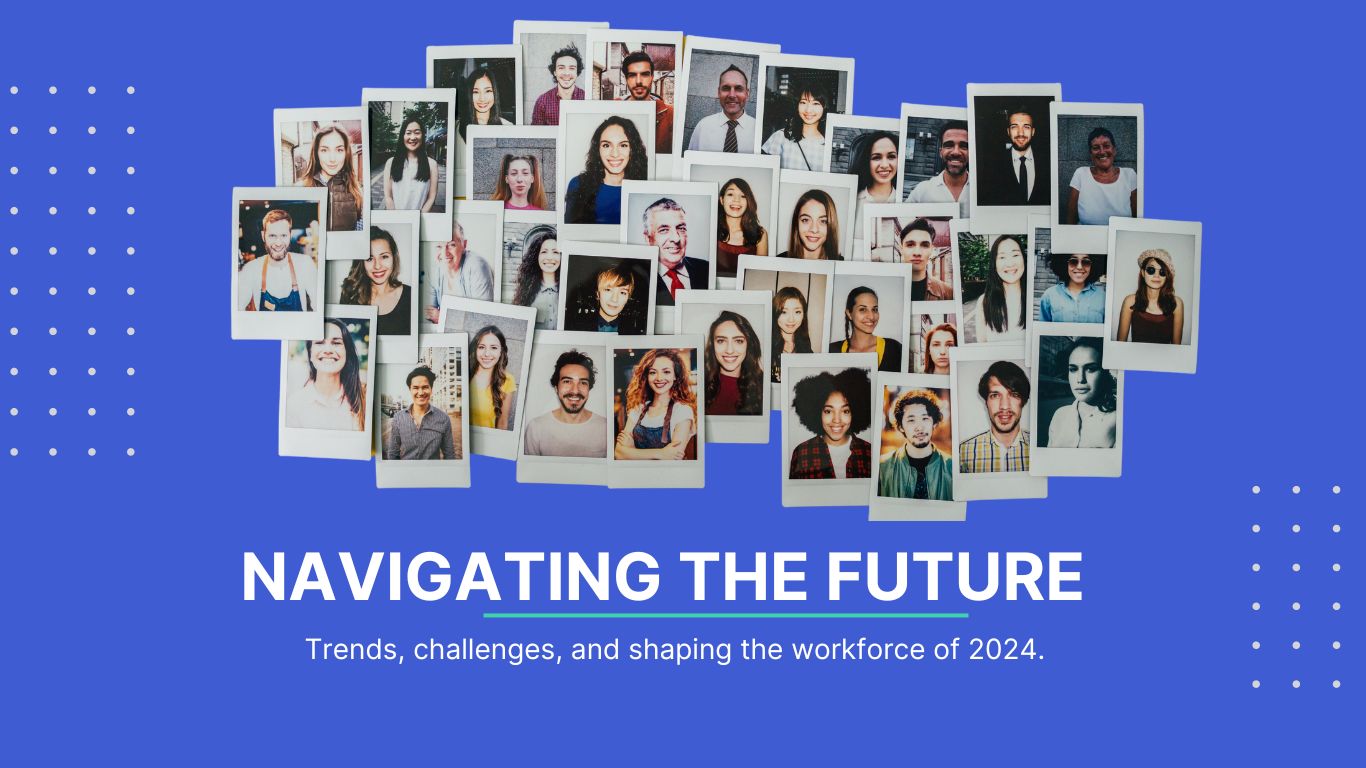Navigating the Future: HR Leadership with Mool in 2024
13 Feb, 2024

As the business landscape continues to evolve, HR leaders find themselves at the forefront of shaping the workforce of 2024. In this dynamic environment, key trends and challenges are emerging, requiring an adaptive and proactive response from HR professionals.
Diversity, Equity, and Inclusion (DEI):
The commitment to DEI initiatives remains steadfast, with a continued focus on creating inclusive workplaces. HR leaders are aiming to address systemic biases and implement strategies for diverse talent acquisition and retention.
Notably, Gen Z strongly prefers companies prioritizing DEI, underlining the significance of embedding these values into organizational culture.
Sustainability:
Sustainability has transcended corporate responsibility, becoming a strategic imperative. HR leaders face growing pressure to reduce ecological impact and promote climate-conscious policies.
Beyond enhancing the corporate image, these initiatives are crucial for attracting top talent. Integrating sustainability into the organizational culture aligns with the values of the workforce. It positions the company as a responsible global citizen.
Artificial Intelligence (AI):
AI is positioned as a viable alternative for specific skills without replacing jobs. However, its effectiveness hinges on intelligent human input.
HR leaders are spearheading upskilling and reskilling efforts, recognizing that employees need to adapt to work harmoniously with AI.
2024 marks the year of specialized AI-powered assistants working alongside humans, emphasizing the collaborative relationship between technology and the workforce.
Upskilling & Reskilling:
Identifying essential skills for organizational growth is paramount in the era of technology and AI. HR teams must lead initiatives for continuous training to keep employees' skills relevant and enhance loyalty and retention.
Offering and supporting training not only aligns with the company's growth strategy but also strengthens employee loyalty, ensuring they are equipped for the evolving demands of the digital age.
Executive Coaching:
The demand for executive coaching has surged, indicating a recognition of its value in navigating the dynamic business landscape. HR leaders are embracing coaching as a tool to empower leadership teams and cultivate effective managers.
The growth in the coaching industry post-pandemic underscores its resilience and effectiveness in times of change, making it an integral component of leadership development strategies.
Integration of Gen Z:
With Gen Z expected to comprise 30% of the workforce by 2025, HR leaders are tailoring programs to accommodate their unique priorities.
This includes a focus on career development, work-life balance, and the promotion of diverse thoughts and ideas. Facilitating social learning opportunities, such as mentorship from older generations, fosters collaboration across multigenerational teams.
Employees’ Overall Well-being:
Post-pandemic, the shift in priorities toward employee well-being is evident. HR leaders are crafting holistic strategies encompassing mental health support, wellness initiatives, and a culture of appreciation.
Prioritizing the well-being of employees not only enhances productivity but also strengthens the organization's employer brand.
Change Management:
Change is inevitable in the face of digital transformation, economic uncertainties, and political tensions.
CHROs are prioritizing organizational design and change management strategies. Shifting from traditional hierarchies to flexible and adaptable workforces requires agile communication channels, continuous learning, and the development of transferable skills within the workforce.
Mool - The Multidimensional Solution:
Navigating the challenges of 2024, Mool emerges as a versatile solution for employee retention, motivation, and compensation design. Its SaaS-based model ensures accessibility, scalability, and flexibility for future challenges in employee development.
Mool addresses the multidimensional puzzle of modern HR with a nuanced approach to compensation design, surpassing cookie-cutter models. By incorporating Mool Vetan, its flagship product, organizations witness a notable upswing with a 10% increase in take-home salary and cutting-edge features that offer up to 45% tax savings.
This not only enhances compensation structures but also positions Mool as a dynamic tool for fostering financial well-being and motivation within the workforce.
In conclusion, HR leaders must navigate these transformative trends with a proactive and adaptive approach, placing the employee experience at the forefront. Fostering positive work environments, addressing mental health, and aligning with global sustainability goals position HR professionals as architects of a future where work is a dynamic and thriving ecosystem.
Embracing these trends allows HR to lead the charge toward a more inclusive, sustainable, and resilient future of work in 2024.
Access exclusive content and expert tips by subscribing to our newsletter today!
Mool is a leading financial startup that aims to create a sustainable solution for corporate employees by facilitating effective tax planning, smart investments, insurance, and borrowing options. Mool simplifies the personal financial and taxation jargon and makes it accessible to all. With the products of Mool, organizations and employees can now maximize the value of their salaries without a hassle. Mool’s mission is to create a platform to educate everyone, optimize the growth of their money, and empower them with rich facts and proven analysis for decision making.